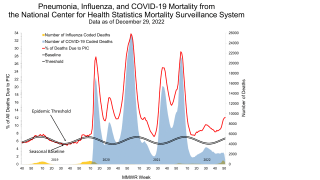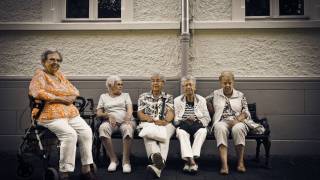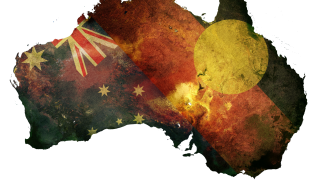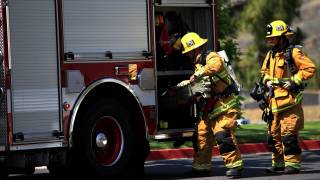Causal-Agent Not Yet Identified in China’s Viral Pneumonia Outbreak

The World Health Organization (WHO) announced it had activated its disease incident management system and was closely monitoring the outbreak of an unidentified strain of viral pneumonia in central China.
The causal agent has not yet been identified or confirmed, says the WHO.
This WHO announcement on January 5, 2020, came after the number of human cases reported by Chinese authorities in Wuhan had quickly jumped to 44 from 27, just 3 days prior.
Eleven of those individuals were in serious condition, while a further 121 people who had been in close contact with the infected patients had been placed under medical observation in Wuhan medical institutions.
The clinical signs and symptoms are mainly fever, with a few patients having difficulty in breathing, and chest radiographs showing invasive lesions of both lungs.
Based on the preliminary information from the Chinese investigation team, no evidence of significant human-to-human transmission and no health care worker infections have been reported.
No fatalities have been reported by the WHO or China health officials.
According to the local authorities, some patients were operating vendors in the Huanan Seafood market. Wuhan is the capital of Hubei province with a population of 11 million, located in the east-central region of the People's Republic of China.
As of January 5th, the WHO’s risk assessment says ‘There is limited information to determine the overall risk of this reported cluster of pneumonia of unknown etiology.’
The outbreak has triggered concern because of the similarities with the epidemics of Severe Acute Respiratory Syndrome (SARS) and bird flu which killed hundreds of people in mainland China and Hong Kong between 2002 and 2004.
SARS is reported to have contributed to 349 fatalities in mainland China and another 299 in Hong Kong during 2003.
On May 18, 2004, the WHO declared that the chain of human-to-human SARS transmission had been discontinued.
“We’re closely monitoring the situation in Wuhan and are in active communication with our counterparts in China,” the WHO’s Western Pacific regional office said in a statement.
This WHO statement continued saying ‘the authorities in Beijing had been in contact and its incident management system had been activated at the national and regional levels and in its headquarters in Geneva.’
A spokeswoman for the WHO said incident management teams had been activated at all 3 levels on January 2nd, adding that similar measures were in place for the Ebola outbreak in the Democratic Republic of Congo and the global measles outbreak.
The WHO also said that China has an “extensive capacity” to respond to the incident and is taking a number of measures, including investigating the cause, isolating patients, tracing close contacts and closing the seafood market at the center of the outbreak.
The WHO commission added that there was no proof of human-to-human transmission, nor had any medical staff contracted the illness.
Based on the information provided by national authorities, the WHO’s recommendations on public health measures and surveillance of influenza and severe acute respiratory infections still apply.
The WHO does not recommend any specific measures for travelers.
In case of symptoms suggestive of respiratory illness either during or after travel, travelers are encouraged to seek medical attention and share travel history with their healthcare provider.
WHO advises against the application of any travel or trade restrictions on China based on the current information available on this event.
UPDATE: On January 6, 2020, the US Centers for Disease Control and Prevention (CDC) issued a notice which includes 'As of this posting, case-patients in the cluster reportedly have had fever, difficulty breathing, and bilateral lung infiltrates on chest radiograph. For patients with similar respiratory symptoms who recently traveled to Wuhan, consider pneumonia related to the cluster and notify infection control personnel and your local health department immediately.'
The CDC does identify various vaccines international travelers should discuss with a healthcare provider prior to visiting China.
Vaccine Travel News published by Vax-Before-Travel
Our Trust Standards: Medical Advisory Committee

























